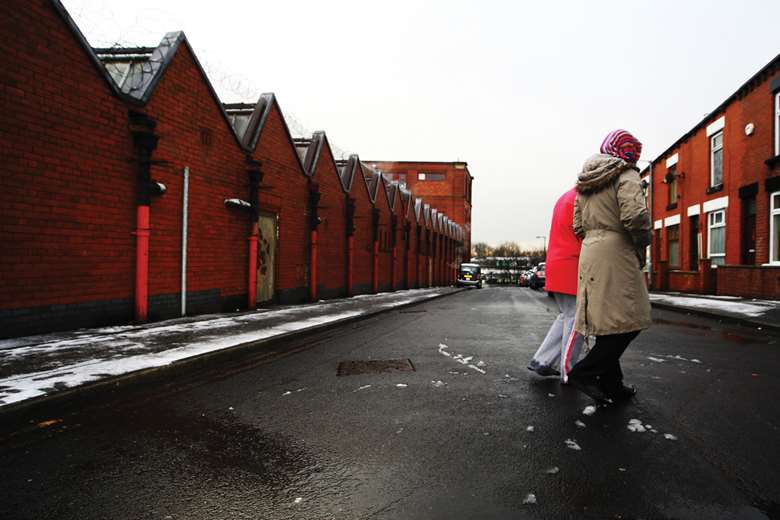Legal Update: Asylum seekers face benefit gap
Chris Sykes
Tuesday, January 8, 2013
With an estimated 10,000 asylum-seeking children living far below the poverty line, Chris Sykes, legal officer at Coram Children's Legal Centre, examines concerns over support offered to families

Asylum-seekers who arrive in Britain do not have recourse to mainstream benefits. Instead, a separate system of support applies to them under Section 95 and Section 4 of the Immigration and Asylum Act 1999.
Section 95 offers support while the asylum claim is ongoing and after it is rejected in certain cases. It provides money and accommodation according to the household status of the applicant. Support ranges from £36.62 for a single adult to £57.96 for a child under one year old. Adults and families without dependent children lose Section 95 support if their claim is refused. Refused asylum seekers with dependent children can claim Section 95 support until the youngest child turns 18 or for as long as they remain in the UK if their child or children were born before the asylum claim was determined.
If an asylum seeker’s application is refused and they and their child or children are ineligible for Section 95 support, they may receive short-term support under Section 4 of the act. Section 4 support is designed for refused asylum seekers who cannot leave the UK. Mothers who give birth after their asylum claim is refused must rely on Section 4.
Support is provided in the form of accommodation and a payment card. It is only available under strict circumstances; for example, the unsuccessful applicant cannot travel for medical reasons and requires support to avoid destitution. Section 4 is paid at a standard rate of £35.39 a person a week.
Criticism of the act
In April this year, the Children’s Society published a briefing on the gap between asylum support and mainstream benefits. It criticised the act for offering rates of support far lower than equivalent benefits under income support. In some cases, the support under Section 95 is as low as half of what is available under income support. Defenders of the legislation claim that this discrepancy accounts for the subsidised housing provided to asylum seekers while their claim is being processed, but the Children’s Society and others argue that it is too wide to justify. The briefing drew attention to other apparently unfair discrepancies. For example, disabled people receive additional support under income support but not necessarily under the act.
The briefing also criticised Section 4 support as insufficient. It referred to the case of R (VC) v Newcastle City Council in which Munby LJ cited the Secretary of State’s view that Section 4 is “an austere regime, effectively of last resort”, which provides “a minimum level of humanitarian support”. The Children’s Society attributes the destitution suffered by mothers who give birth after their claim is refused to the threadbare support provided under Section 4.
The impact on asylum seekers
The system of asylum support is insufficient to keep asylum seekers from destitution. The Children’s Society estimates that Section 95 offers a couple with a 16-year-old child only 37 per cent of what they need to escape poverty – as defined by the Department for Work and Pensions’ “after housing costs” poverty threshold. There is particular concern that the act’s shortcomings disproportionately affect children. Of the 3,715 individuals (including dependants) receiving Section 4 support in April 2011, 21 per cent (or 765) were children. Moreover, 52 per cent of these 3,715 individuals had been relying on the “short-term” support of Section 4 for between two and six years. The Children’s Society estimates that around 10,000 asylum-seeking children live “far below the poverty level” because of the inadequate support provided by Section 95 and Section 4.
A number of members of both Houses of Parliament are assisting the Children’s Society in an ongoing inquiry, chaired by Sarah Teather MP, into asylum support for children. A report will be published in this month.




